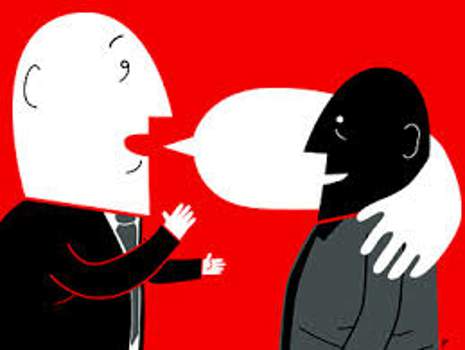
According to the Harvard Business Review, English is now the global language of business. English is declared the working language of the World Bank, The European Central Bank, (based in Frankfurt, Germany) and AXA (the French multinational insurance firm headquartered in Paris). The English we use in business however is distinct, perhaps forming a unique dialect. The language of banking and finance is an even more discrete and particular sub-dialect that has evolved to become increasingly abstract, technical and, of concern – morally and ethically neutral.
Those in banking tend to talk of cost-benefit-analysis rather than what is right, resources rather than people, and economic drivers rather than ethical dilemmas. The use of such language shapes not just thinking, but also drives decisions and condones behaviours. As the banking and finance industry is increasingly held to account by the public, and regulators attempt to grapple with how to best manage risk, the consideration of the role of language in both creating and undermining ethical work cultures is essential.
Stripping decisions of the human element
The language of ethics in business includes words such
as right, wrong, good, bad, fair, trust, honesty, integrity, respect, commitment, care, conscien ce, community, society and service. Whilst these words are commonly found in bank mission and value statements and used in the case of crisis, they are less common in the everyday language of workplaces. Instead, banking executives talk of feasibility, forecasts, cost benefit analysis, adjustments, return on investment and ‘the business case’ – which frequently focuses solely on a financial analysis.
This limited vocabulary of economic and financial terms not only actively excludes the language of ethics but also tends to present absolutes, making complex arguments appear simple – overly simple. Compelling graphs and models coupled with morally and ethically neutral language can strip decisions and actions of the ‘human’ element of business and can expose businesses to unforeseen risks that might otherwise have been blindingly obvious. One is left wondering if we have in fact learnt anything from the case of Ford Pinto in the 1970s, where a cost-benefit-analysis assigned dollar amounts to a re-design, potential lawsuits and even human lives, determining that it would be cheaper to pay off claimants than undertake the necessary repair. Ford were subsequently charged not only with negligence but also reckless homicide. However, it would seem we have not yet heeded the warning this case heralded.
Moral muteness
Instead, we have seen the steady acceptance of at times brutal cost-benefit-analysis and
even the spread of what academics have identified as ‘moral muteness’ where people choose not to voice moral sentiments, even when they have influenced a decision.
One would hope the Australian Government Report of December 2015 – titled, ‘The Economic Cost of Child Abuse and Neglect, with accompanying expenditure data table – is an example of moral muteness, as opposed to what otherwise might appear to be a heartless analysis of a social issue, particularly when viewed through the eyes of a victim and their family.
The report makes no explicit mention of children’s rights, moral obligations or community expectations. There is no declaration that child abuse is wrong and should never be tolerated, agreement of which would be widespread. Rather, the paper studies the ‘expenditure’, ‘costing frameworks’ and ‘economic burden’ which could lead one to conclude that the ethics or morals of the issue simply do not matter.
This practice – typically referred to as ‘making the business case’ – has become common, with most issues facing our society subject to such quantification and financial justification.
When the current Treasurer of Australia, The Hon. Scott Morrison MP, announced a tobacco tax increase in the 2016 Budget, he spoke of the $3.8 billion over four years that it would raise, rather than the health benefits to the Australian community and obligation to future generations. Cancer Council Australia CEO, Professor Sanchia Aranda was left to translate the announcement in terms of the positive impact to society, including the cancer deaths prevented and projected improvements in the nation’s health with an estimated 320,000 adult Australian smokers likely to quit and 40,000 teenagers who would be deterred from taking up smoking as a result of the increase.
It would seem that the economic and financial language of business currently ‘trumps’ the language of ethics. Academics have even observed that individuals are concerned that using the language of ethics at work poses some type of threat to harmony and efficiency and interestingly their own image of power.
As Universities and Business Schools continue to embed ethics in course materials, young people will enter the banking and finance industry equipped with a language that includes ethics. It is therefore up to the rest of us to ensure that the ethical work cultures and businesses we so desire are not undermined by that which invariably surrounds us – words.
Clare Payne specialises in the field of ethics in banking and finance. Clare commenced her career as an employment lawyer and then managed the Integrity Office of Macquarie Bank. Clare initiated – and is now a Director of – The Banking and Financial Services Oath (bfso.org). She is Fellow for Ethics in Banking and Finance with The Ethics Centre in Sydney, Australia and was awarded the Inaugural Ethics, Responsibility and Trust in Finance Prize by the Observatoire de la Finance, Geneva. In 2016 Clare was recognized as 100 Women of Influence by Australian Financial Review and Westpac.